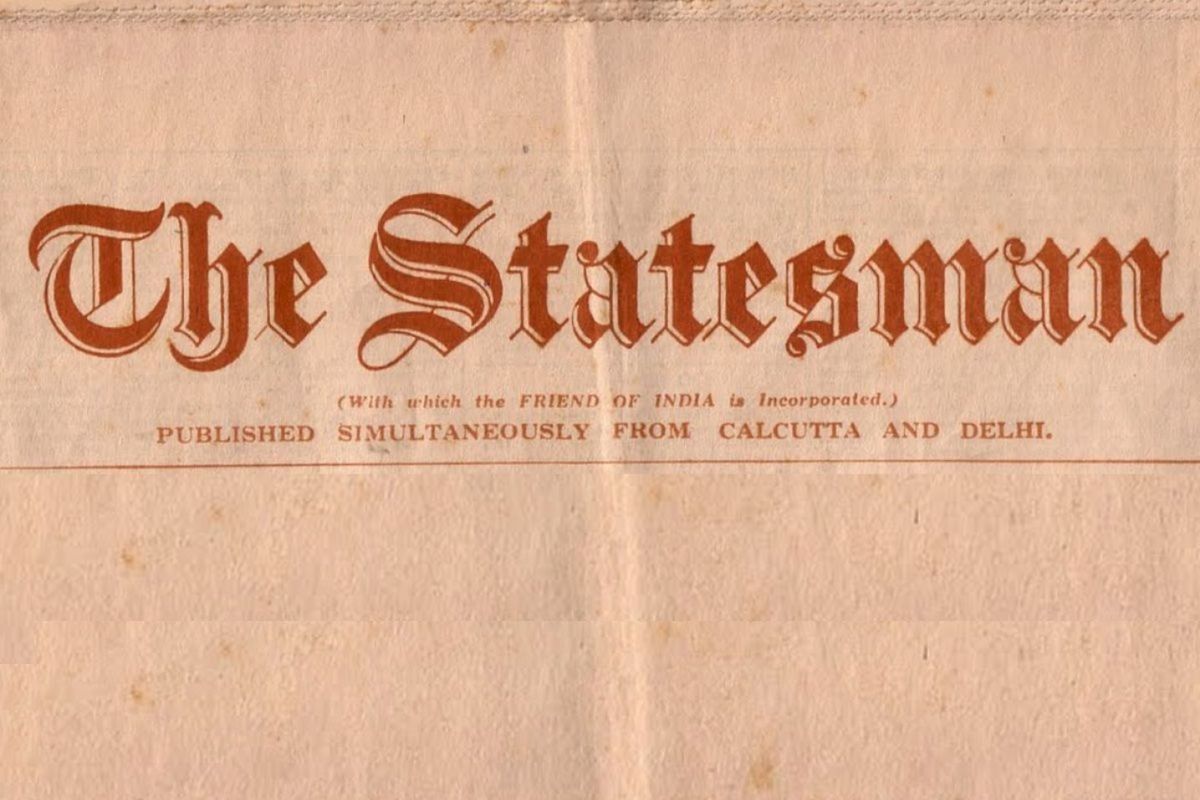A New Day, A New Dawn
There is a surprise for the readers. A special Poila Boishakh gift from none other than West Bengal chief minister Mamata Banerjee. Who has written a piece for this special edition.
On this day a century ago, these were some of the news items The Statesman readers got to read about India and the world.

OCCASIONAL NOTE
There is ample justification for the alleged “sharpness” of the Allied note to Germany on the subject of that country’s failure to honour the terms of the armistice, but one wonders whether, in their natural indignation, the august signatories do not travel a little outside the bounds of what it is possible to demand from human nature. The note, we are told, expresses “profound astonishment that German public opinion is still so little conscious of its responsibilities as not itself to demand just punishment for the crimes committed, and the criminals neither enough courage nor enough patriotism to come freely before the bar of judgment and defend their conduct.” This may, or may not be a hit at the ex-Kaiser, but in any case, it will almost certainly leave him and his fellow culprits cold. If he or they had been the men to come forward and offer to stand their trial, they would not have run away from their posts, and even their country, in the moment of the debacle for which they were responsible. As for the feelings of the Germans as a body, Miss Violet Markham, a recent observer, writes in the Westminster that they “are unhappy, undoubtedly, but still they look back with nothing but pride on the war, and England is making a great mistake if she thinks Germany is still sitting wrapped in a sheet, grasping a large candle, and lamenting her sins. Not a bit of it.” If this is true, the outlook is gloomy indeed. But possibly it is slightly exaggerated.
INDIAN TRADE PROBLEMS
Advertisement
BOMBAY, DEC 6
The Indian Merchants Chamber and Bureau, expressing its opinion on the question of changes in the Workmen’s Breach of Contract Act, urge its total repeal as essential to safeguard the interests of labour and secure reasonable terms of employment. On the question of the prohibition of the import of foreign dyes except under license, the Chamber urges the withdrawal of the notification on the subject or make the alternative proposal that the Government of India should get prepared a list of dyes which the United Kingdom can supply to India. There must be a certain rate of price fixed to determine what is a reasonable price, and an advisory committee of three Indian and two European merchants should be appointed to collaborate with the Collector of Customs of each port.
ASSAM LABOUR BOARD
DELHI, DEC 6
The annual report on the working of the Assam Labour Board has been published today. Referring to illegal recruitment the report states during the year under report, cases of illegal recruitment by Arkatties were neither numerous nor of much importance. At Bilaspur one Lochiram was sentenced to six months’ rigorous imprisonment under section 320, Indian Penal Code, for accepting money from two garden sardars on the condition that he would supply them with coolies, a condition which he did not fulfill. A garden sardar and two accomplices were sentenced each to three months’ rigorous imprisonment for the misdescription of a woman before the local agent at Chaibassa. The woman was handed over to the garden sardar by an Arkatti, who has not yet been traced, from Raxaul in the Champaran District.
BILLS OF EXCHANGE AGAINST TEA
An abstract of the proceedings of a meeting of the General Committee of the Indian Tea Association states, with regard to the disposal of bills of exchange against tea shipped on account of the Food Controller that the correspondence with the Tea Commissioner for India on this question was last referred to in the proceedings of 4th September. The position then was that the Tea Commissioner had promised to submit the Committee’s representations to the Food Controller for his orders on receipt of particulars, from the firms concerned, of the premium for cover actually paid by them. At the same time the Tea Commissioner was in correspondence with the Controller of Currency in regard to the question of bills which had not been negotiated and of bills still to be submitted.
CO-OPERATION IN BOMBAY PRESIDENCY
A Bombay Government resolution reviewing the work of the Registrar of Co-operative Societies for the year 1918, points out that the failure of the monsoon in 1918 severely tried the resisting capacity of agriculturists, who form the bulk of the members of the co-operative societies. The working of these societies shows that agricultural co-operation has achieved a high degree of protection against the vicissitudes of the season, and lends further support to the views of the Government, formed as a result of the famine relief operations, that the people of Bombay Presidency have developed staying power of unexpected strength, which was evidenced in the loyalty of depositors to their societies as indicated by the comparatively small amount of withdrawals. Amongst the mill-hands of Bombay good work is being done mainly through the agency of the Debt Redemption Committee and Social Service League.
Advertisement